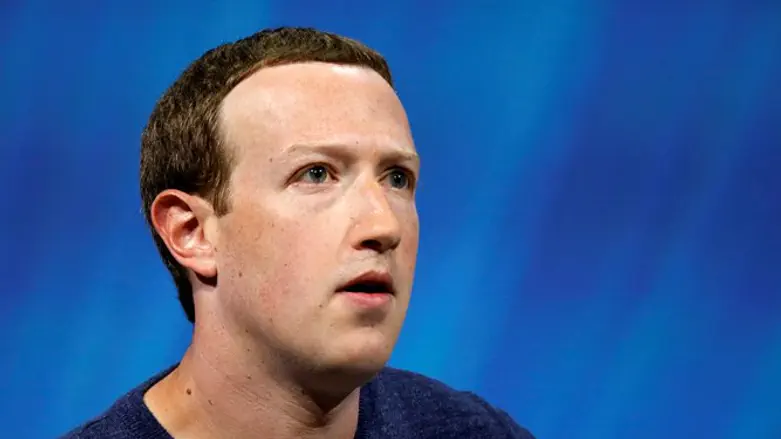
Facebook founder Mark Zuckerberg said on Wednesday the social network would not remove posts with Holocaust denial from its platform.
Speaking in an interview with tech news website Recode, Zuckerberg said Facebook prioritizes allowing people to express themselves even if they “get things wrong” while stressing he does not want Facebook to serve as a platform for harming people or groups.
While Facebook would not remove a post denying the Holocaust, Zuckerberg explained, it would push that post down the News Feed to make sure it doesn’t go viral.
“I’m Jewish, and there’s a set of people who deny that the Holocaust happened,” he told the interviewer, Kara Swisher.
“I find that deeply offensive. But at the end of the day, I don’t believe that our platform should take that down because I think there are things that different people get wrong. I don’t think that they’re intentionally getting it wrong, but I think … It’s hard to impugn intent and to understand the intent. I just don’t think that it is the right thing to say ‘We’re going to take someone off the platform if they get things wrong, even multiple times.’”
“What we will do is we’ll say, ‘OK, you have your page, and if you’re not trying to organize harm against someone, or attacking someone, then you can put up that content on your page, even if people might disagree with it or find it offensive.’ But that doesn’t mean that we have a responsibility to make it widely distributed in News Feed,” he continued.
Jonathan Greenblatt, national director of the Anti-Defamation League, said in a statement later on Wednesday that Facebook should take a harder line on Holocaust denial.
“Holocaust denial is a willful, deliberate and longstanding deception tactic by anti-Semites that is incontrovertibly hateful, hurtful, and threatening to Jews,” he said, according to JTA.
“Facebook has a moral and ethical obligation not to allow its dissemination. ADL will continue to challenge Facebook on this position and call on them to regard Holocaust denial as a violation of their community guidelines,” added Greenblatt.
Zuckerberg later on Wednesday clarified his remarks in a statement to Recode.
“I personally find Holocaust denial deeply offensive, and I absolutely didn’t intend to defend the intent of people who deny that,” he wrote.
“Our goal with fake news is not to prevent anyone from saying something untrue — but to stop fake news and misinformation spreading across our services. If something is spreading and is rated false by fact checkers, it would lose the vast majority of its distribution in News Feed. And of course if a post crossed line into advocating for violence or hate against a particular group, it would be removed. These issues are very challenging but I believe that often the best way to fight offensive bad speech is with good speech,” added the Facebook founder.
Facebook has faced criticism in recent years over its failure to address posts containing anti-Semitic content or incitement to terrorism.
In April, the social network said it removed or put a warning label on 1.9 million pieces of extremist content related to the Islamic State (ISIS) or Al-Qaeda terrorist groups in the first three months of the year.
Facebook also published its internal definition of “terrorism” for the first time, as part of an effort to be more open about internal company operations.
The European Union has been putting pressure on Facebook and its tech industry competitors to remove extremist content more rapidly or face legislation forcing them to do so, and the sector has increased efforts to demonstrate progress.
In addition to the pressure from Europe, Facebook, Twitter and Google have also been facing a concerted campaign by Jewish and pro-Israel activists, calling on them to take action against anti-Semitic incitement.
Activists and terror victims’ rights campaigners allege the companies are turning a blind eye to the torrent of hate which helps inspire deadly terrorism in Israel.
In 2016, Israel filed 158 requests to remove inciting content on Facebook, and 13 requests to YouTube (owned by Google).
Around 95% of the requested content was removed from Facebook, while YouTube agreed to remove 80% of the content.
